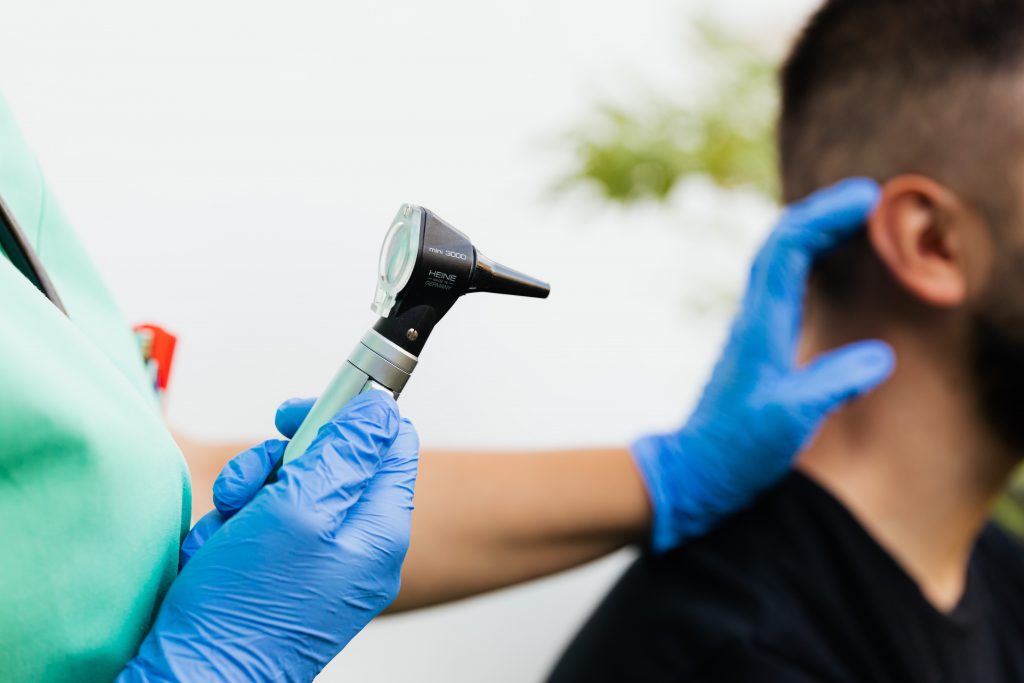No one has time for hearing problems, which is why you’re probably looking for a solution as soon as you realize there may be a problem. But if you are experiencing hearing loss, you can’t simply start using hearing aids and call it a day. You need the knowledge and expertise of an audiologist who can help determine what type of hearing loss you’re suffering from. A hearing evaluation will uncover which part of your ear is damaged and determine the proper treatment plan to treat your hearing loss.
Follow along as El Dorado Hearing shares the different types of hearing loss, including mixed hearing loss, and outlines how you can manage your hearing problems.

Types of Hearing Loss
Before we discuss mixed hearing loss, it’s important to understand sensorineural and conductive hearing loss.
Sensorineural Hearing Loss
Sensorineural hearing loss is the most common type of hearing loss experienced. It occurs when the inner ear or auditory nerve becomes damaged. This damage can occur from frequent exposure to loud noises, antibiotic drugs, birth asphyxia, premature birth, or through genetics. Although the individual with sensorineural hearing loss is unable to fully restore their hearing with surgery, hearing aids allow them to pick up the sounds around them.
Conductive Hearing Loss
Another type of hearing loss is conductive hearing loss. This occurs when an individual is experiencing a problem in their inner ear that prevents the sound waves from traveling through the ear canal. Conductive hearing loss can be caused by excess earwax, ear infections, diseases of the outer or middle ear, upper respiratory infections, or congenital defects. If the condition causing the conductive hearing loss is treated, the individual will likely have their hearing restored.
Mixed Hearing Loss
Now that we’ve taken a look at sensorineural and conductive hearing loss, it’s time to explore mixed hearing loss. This type of hearing loss is a combination of these two types. The individual may have sensorineural hearing loss and simultaneously develop a conductive component, such as an ear infection, ear wax buildup, and more. We recommend scheduling a hearing evaluation with an audiologist so you can determine what type of hearing loss you have and can begin the proper treatment plan. Without the correct diagnosis, you may find that the corrective measures you’re taking aren’t helping to restore your hearing.
Hearing Loss Treatment with El Dorado Hearing
We provide complete evaluations at El Dorado Hearing to assist in managing your hearing loss. Our hearing specialists are highly experienced and offer an in-depth hearing assessment to evaluate whether you have hearing loss and the extent to which the loss affects you. Don’t guess when it comes to your hearing — instead, rely on our experienced team to help you get your hearing back to a good place.
Depending on what your hearing evaluation uncovers, a hearing specialist may recommend hearing aids, which are one of the most effective hearing loss treatments. Hearing aids are available in many sizes, styles, and technologies, allowing individuals to find a pair that meets their specific needs. If hearing aids aren’t suitable for you, a hearing specialist can review many alternatives to hearing aids to help restore your hearing.
We strive to make our hearing offices comfortable where everyone feels welcome. We’ll help you find the proper hearing aids to restore your hearing. For personalized hearing testing in Tucson, AZ, make El Dorado Hearing of Tucson first on your list.
If you are ready to regain control of your hearing, visit us at one of our hearing clinics. Contact us today to set up an appointment with one of our caring and expert hearing specialists!




Leave a Reply